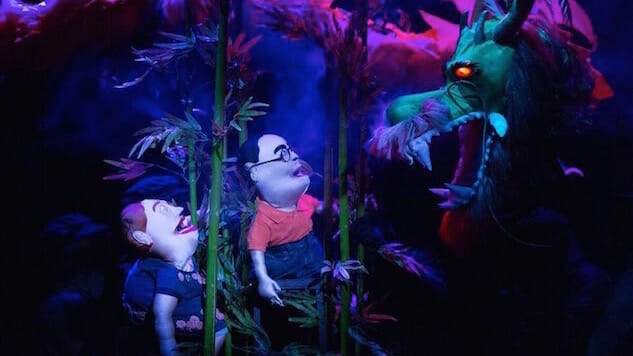
In 2012, an Oregonian named Julie Keith went to Kmart and purchased an ordinary Halloween graveyard decoration kit. In it, she found a surprise that would change her perspective on cheap tchotchkes forever: a sealed note allegedly written by a prisoner at a Chinese labor camp. The writer frantically claimed that he or she was forced to work 15 hours a day without breaks, suffering beatings and receiving next to no pay. The writer begged for attention from human rights organizations.
Keith posted the note wide and vowed never to buy products made in China again.
While the veracity of the note remains up to question, Human Rights Watch confirmed that the account aligned with real conditions in labor camps in China, where citizens were “re-educated” without trial and used for labor to support the nation’s soaring manufacturing demands. The camps were shut down in 2013 partly thanks to the publicity of Keith’s note, but arbitrary detention and inhumane labor conditions remain rampant.
The fascinating note in a bottle-esque tale lends itself well to adaptation, but few could capture the story more magnificently than Made In China, a new play by innovative puppet theater company Wakka Wakka Ensemble.
The script isn’t explicitly based on Julie Keith, but the storyline is there. In this charming play, a lonely American divorcee named Mary finds a similarly alarming note among her cheap-o Christmas purchases. She has a tense relationship with her neighbor, a Chinese immigrant named Eddie Wang, who offers no help in the matter.
The script goes from zero to 100 quickly—from grounded suburban reality to talking appliances to some very surreal events that usher Mary and Eddie all the way to China. There, they embark on an unlikely hero’s journey while getting in touch with their own pasts.
Wakka Wakka has tackled heavy subjects before, from famed holocaust victim Moritz Rabinowitz in their production Fabrik to climate change and apocalypse in their Obie-winning play Baby Universe. The group based Made In China on their own experiences visiting China. A few cast members are bilingual.
Wakka Wakka’s plays—largely not for kids—employ whimsical comedy only afforded by clever puppetry. The jokes, songs, and dialogue in Made and China are very funny (Mary’s naïve strength and earnestness steal the show), but the true humor comes through in the company’s endearing use of scale, subtle anthropomorphic gestures, meticulous puppet craftsmanship, and resourceful, minimal staging that challenges the imagination. It isn’t funny to watch someone reach for a phone under a couch—but watching a team of puppeteers successfully nail this difficult bit of blocking mid-air with a silly, floppy puppet…suddenly it’s comedy.
Yet, like other Wakka Wakka shows, Made In China gets grotesque, disturbing, and genuinely scary at times. Projections of propaganda greet Mary and Eddie in China, as well as some chilling ghosts and spirits. The political message isn’t subtle, either. Whether through Mary’s moralistic arc or the cameos of an overlord-esque Chairman Mao and Uncle Sam, Made In China continuously drives home that this is an international crisis in which we all play a role. You will definitely think twice before buying a product made in China again.
It takes a lot of skill to blend these elements successfully into any play, let alone a play in which your actors are made of lifeless fabric. Wakka Wakka, however, makes it look easy. There is however a small cost to their ambition: in an effort to cram everything into 90 minutes, the show wraps up a little too hastily. You’ll want more, which may be the best criticism a show can ask for.
Written and directed by: Kirjan Waage and Gwendolyn Warnock
Presented by: The Wakka Wakka Ensemble
Runs through: February 19 at 59E59 in NYC.